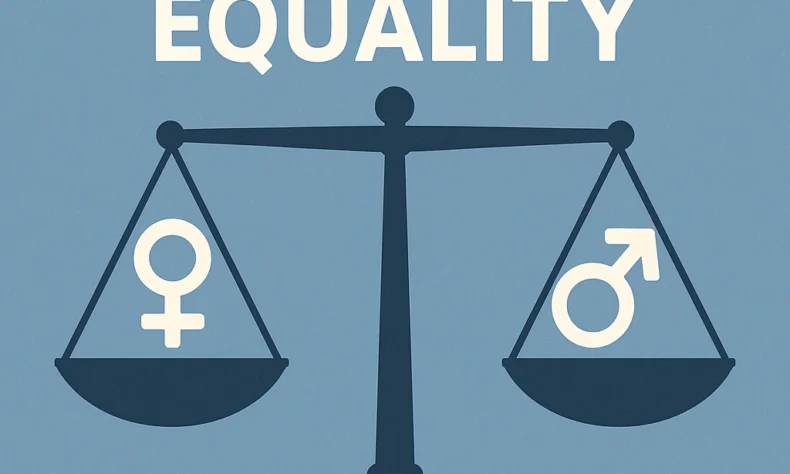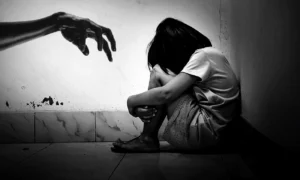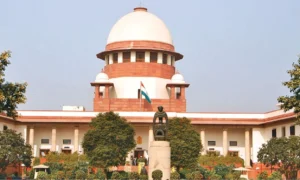
By Ritti Changani
Gender inequality did not start at a single point in time but emerged gradually, with early evidence pointing to the Neolithic period (around 10,000-12,000 years ago) as a time when it began to take shape due to the shift from nomadic lifestyles to settled agricultural societies, leading to new concepts of ownership and social structures. These changes started slowly; at first, women were not allowed to work outside the house, and on days when they were menstruating, they were treated as impure and were not allowed to enter temples. Men, on the other hand, gained more importance in society.
Many reforms were introduced by pioneers, such as Savitribai Phule, who championed women’s rights through establishing India’s first girls’ school and advocating for widow remarriage, inter-caste marriages, and the abolition of child marriage and Sati. She co-founded the first school in Pune in India and is regarded as India’s first woman teacher, she opposed child marriage, advocated for widow remarriage, and established the Balhatya Pratibandhak Griha (1863), a shelter for widows and pregnant rape survivors. And many more reforms were introduced by others, in her wake, some men and a large number of women.
It’s not like only women suffered gender inequality, men also faced the same and reforms began in the first half of 1970 when male scholars critically examined how patriarchal societies negatively impacted both men and women. This movement was a response to feminist scholarship and argued that traditional concepts of masculinity and femininity were socially constructed, rather than innate. This was known as Men’s liberation Movement. In this movement aimed to liberate men from the pressure and constraints of patriarchal structures, which were seen as harmful to both sexes. Psychologists involved in the movement posited that gender roles were not biologically determined but rather products of social conditioning.
Legal Framework and Constitutional Provisions
In the Indian Constitution, there are several amendments relating to gender equality. These Articles were provided so that there should be no gender inequality or discrimination on the basis of caste, sex and religion. These Articles ensure that every citizen of India can live freely and with respect.
Article 14: Article 14 of the Constitution ensures equality before the law. It states that the State shall not deny any person equality before the law or the equal protection of the laws within the territory of India.
Key cases regarding Article 14:
Air India v. Nergesh Meerza (1981): Found discriminatory retirement, marriage, and pregnancy-related rules for female air hostesses to be a violation of Article 14.
Shayara Bano v. Union of India (2017): Declared the practice of Triple Talaq unconstitutional for being arbitrary and a violation of Article 14’s equality principle.
Navtej Singh Johar v. Union of India (2018): Decriminalized consensual same-sex relations, affirming that such discrimination violated Article 14’s guarantee of equality.
Article 15: Article 15 of the Indian Constitution prohibits discrimination on the grounds of religion, race, caste, sex or place of birth.
Key cases regarding Article 15
State of Madras v. Champakam Dorairajan (1951)
Significance: This case invalidated a government order that provided caste-based reservations in education. It prompted the First Constitutional Amendment, which introduced Article 15(4) to permit the state to make special provisions for the advancement of socially and educationally backward classes.
Indra Sawhney v. Union of India (1992)
Significance: Often called the “Mandal Commission Case,” this landmark judgment upheld the 27% reservation for the Other Backward Class (OBC) in government jobs and educational institutions. It also introduced the principle of the “creamy layer” to exclude the affluent from the backward classes from accessing reservation benefits.
Despite the Articles mentioned in the Indian Constitution, there are places in India even now where women are treated lesser than men and some girls are killed before they are born just because they are not boys and because “they are a burden on the family”. Even though every other day, we see that there are protests regarding women’s empowerment but still there are people in India who think women are not allowed to be financially stable and independent.
Gender equality in India has come a long way, but there is still much to be done. Historically, women in India have faced many challenges, but they have also made significant strides. Today, women are excelling in various fields and breaking barriers. However, gender inequality remains a pressing issue that affects many aspects of life. It is important for everyone to continue working towards a future where men and women have equal opportunities and rights. Even though gender inequality is not just for women, men also need equality, equality in providing for families, dividing household responsibility equally, by learning from the past and pushing for change in the present, we can hope for a more equal and just society for all.
So yes, we can say that there have been some changes in our society regarding gender equality but we need to work more in bringing justice to those who are still facing problems in their family just because they are told that they are women they are not allowed to become financially independent or just because they are women, they can’t achieve their dreams. We need to focus on those parts of India where people do not have any knowledge regarding the reforms happening in India and still think that only men are the providers and women’s contribution is limited to the kitchen, which is not true if women earns it will be easier for both of them to provide for the family or to handle the problems that occur in day-to-day life.
—Ritti Changani is a Law graduate of Bundelkhand University
📰 Crime Today News is proudly sponsored by DRYFRUIT & CO – A Brand by eFabby Global LLC
Design & Developed by Yes Mom Hosting






